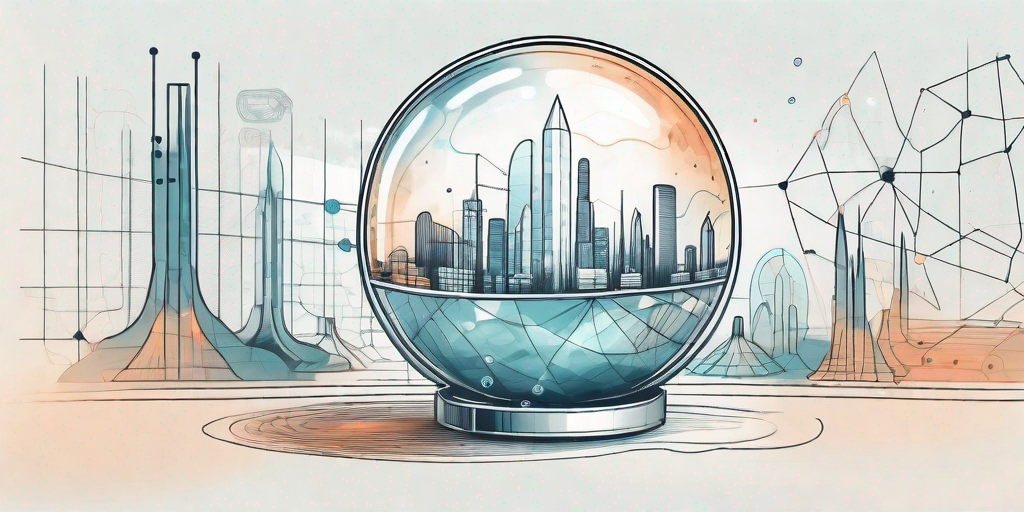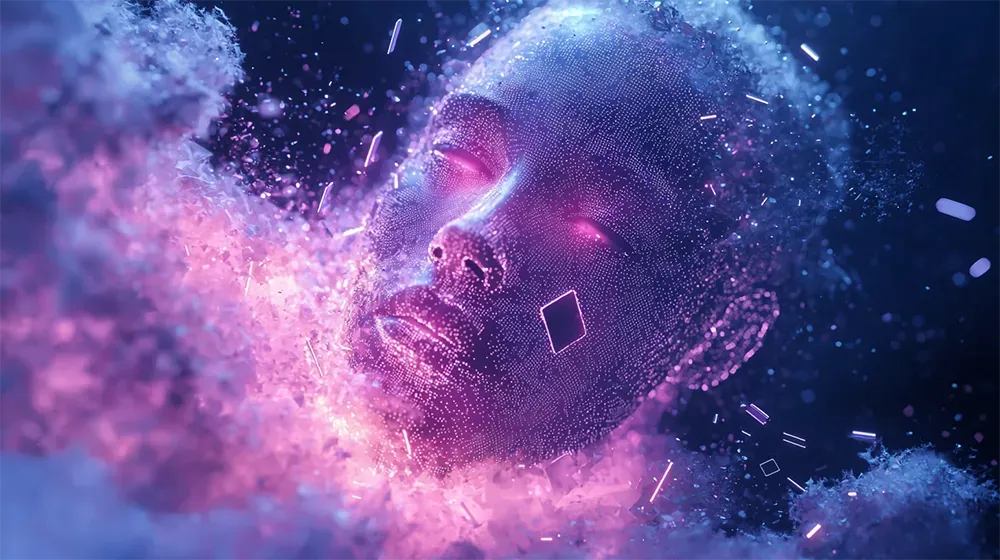Understanding Future of Work with an Innovation Futurist's Help

Understanding Future of Work with an Innovation Futurist's Help
The future of work is a topic that has been the subject of much debate and speculation in recent years. With advancements in technology, globalization, and changing workforce demographics, it's clear that the world of work is undergoing a profound transformation. To gain insights into this rapidly evolving landscape, we turn to the expertise of an innovation futurist.
Understanding the Future of Work
Before we delve into the predictions and insights of an innovation futurist, it's essential to gain a comprehensive understanding of the future of work. The traditional notion of a nine-to-five job in a physical office is becoming outdated, as remote work, freelancing, and the gig economy gain momentum.
Remote work has become increasingly popular in recent years, allowing individuals to work from the comfort of their own homes or anywhere in the world. This flexibility not only provides a better work-life balance but also opens up opportunities for individuals who may not have access to traditional office jobs due to geographical constraints or personal circumstances.
Freelancing has also seen a significant rise, with many professionals opting to work independently rather than being tied to a single employer. This trend allows individuals to have more control over their work, choose projects that align with their interests and skills, and create a diverse portfolio of experiences.
The gig economy, characterized by short-term contracts or freelance work, has also gained traction. Companies are increasingly relying on gig workers to fill temporary positions or complete specific projects, providing them with flexibility and cost-effectiveness.
The digital revolution has given rise to new opportunities and challenges, making agility and adaptability essential skills for thriving in the future work environment. With technology advancing at an unprecedented pace, individuals need to continuously upskill and reskill to stay relevant in their careers.
Furthermore, automation and artificial intelligence are reshaping job roles and tasks across industries. While some jobs may be at risk of being automated, new jobs are also emerging in fields such as data science, cybersecurity, and advanced manufacturing.
Data science, for example, has become a crucial field as companies strive to make sense of the vast amounts of data available to them. Skilled data scientists are in high demand, as they possess the expertise to analyze and extract valuable insights from complex datasets.
Cybersecurity has also become a top priority for organizations, as the digital landscape becomes increasingly vulnerable to cyber threats. Professionals in this field are responsible for safeguarding sensitive information and implementing measures to prevent data breaches.
Advanced manufacturing, driven by technologies such as 3D printing and robotics, is revolutionizing the production process. This field requires individuals with a deep understanding of these technologies and the ability to optimize their use in manufacturing operations.
To prepare ourselves for this new era, it's crucial to explore the insights provided by an innovation futurist. These experts analyze current trends, technological advancements, and societal changes to provide valuable predictions about the future of work. By understanding their insights, individuals and organizations can adapt their strategies and make informed decisions to thrive in the ever-evolving work environment.
How an Innovation Futurist Foresees Changes in the Workplace
An innovation futurist, armed with a deep understanding of technology, human behavior, and economic trends, is uniquely positioned to predict the future of work. By analyzing data, conducting research, and drawing upon their expertise, they can identify the key drivers and implications of technological advancement on employment.
According to our innovation futurist, one notable change in the workplace will be the increased collaboration between humans and machines. Rather than replacing human workers, technology will augment their capabilities, enabling them to focus on tasks that require creativity, critical thinking, and emotional intelligence. This collaboration will lead to improved productivity and innovation.
Additionally, our innovation futurist predicts that the demand for continuous learning and upskilling will skyrocket. As technology rapidly advances, the half-life of skills is shrinking. To remain relevant in the job market, professionals will need to cultivate a growth mindset and embrace lifelong learning. Organizations will play a crucial role in facilitating this learning, providing training opportunities and creating a culture of adaptability.
Furthermore, the innovation futurist highlights the impact of automation on job roles. While some jobs may be automated, new opportunities will emerge. For example, the rise of artificial intelligence and machine learning will create a demand for professionals who can develop, maintain, and improve these technologies. This will require a combination of technical expertise and a deep understanding of human needs and values.
In addition to the collaboration between humans and machines, the innovation futurist envisions a shift in the organizational structure of workplaces. Traditional hierarchical structures will give way to more agile and flexible models. This will enable organizations to adapt quickly to changing market dynamics and embrace innovation. Cross-functional teams and decentralized decision-making will become the norm, fostering creativity and empowering employees.
Moreover, the innovation futurist predicts a transformation in the concept of work-life balance. With advancements in technology, remote work and flexible schedules will become more prevalent. This will allow individuals to have greater control over their work arrangements, leading to increased job satisfaction and improved well-being. The boundaries between work and personal life will blur, with individuals having the freedom to integrate their passions and interests into their professional pursuits.
Additionally, the innovation futurist emphasizes the importance of diversity and inclusion in the future workplace. As technology continues to shape industries, diverse perspectives and experiences will be crucial for driving innovation and avoiding bias. Organizations that prioritize diversity and create inclusive environments will have a competitive advantage, attracting top talent and fostering creativity.
In conclusion, an innovation futurist's insights into the future of work encompass various aspects, including collaboration between humans and machines, the need for continuous learning and upskilling, the impact of automation on job roles, the transformation of organizational structures, the evolution of work-life balance, and the importance of diversity and inclusion. By understanding these trends and preparing for the changes ahead, individuals and organizations can navigate the future of work successfully.
Implications of Technology on Future Jobs
The impact of technology on future jobs cannot be underestimated. While it may displace certain routine and repetitive tasks, it also opens up a world of possibilities. Our innovation futurist emphasizes that creativity, critical thinking, and emotional intelligence will be highly sought-after skills, as these are areas where humans excel over machines.
As technology continues to advance at an unprecedented pace, the implications for future jobs are vast and far-reaching. The integration of artificial intelligence, automation, and robotics into various industries is transforming the way we work and the skills required to succeed. This shift is not only reshaping the job market but also presenting new opportunities for individuals to thrive in the digital age.
Moreover, technology will enable the rise of new business models and industries. For example, the gig economy and platforms like Uber and Airbnb have disrupted traditional employment structures and created new opportunities for freelancers. This trend is likely to continue, with the emergence of even more innovative platforms and business models in various sectors.
With the advent of advanced technologies such as virtual reality, augmented reality, and blockchain, the future job landscape is set to undergo further transformation. These technologies have the potential to revolutionize industries such as healthcare, education, finance, and entertainment, creating a demand for professionals with specialized skills in these areas.
However, it's important to acknowledge that the impact of technology on jobs will not be evenly distributed. Certain sectors and occupations will be more heavily influenced than others. For instance, roles that involve repetitive and predictable tasks, such as data entry and assembly line work, are more susceptible to automation. On the other hand, jobs that require complex problem-solving, creativity, and human interaction, such as design, innovation, and caregiving, are less likely to be fully replaced by machines.
Therefore, it is crucial for individuals to identify future-proof industries and acquire skills that will make them valuable in these sectors. Continuous learning and upskilling will be essential to adapt to the evolving job market. Embracing lifelong learning and staying abreast of technological advancements will not only enhance employability but also foster personal growth and development.
In conclusion, the implications of technology on future jobs are multifaceted. While it may disrupt certain job roles, it also presents new opportunities for innovation and growth. The key lies in understanding the changing dynamics of the job market, acquiring relevant skills, and embracing the transformative power of technology to thrive in the digital era.
Innovation Futurist's Predictions on Employment Trends
Our innovation futurist has identified several key employment trends that are likely to shape the future of work. Firstly, remote work will become increasingly prevalent, facilitated by advancements in communication technology. This shift offers opportunities for greater work-life balance and geographical flexibility.
Secondly, the gig economy will continue to expand. With the rise of freelance platforms and the desire for more flexible work arrangements, traditional employment models may become less dominant. This trend presents both challenges and opportunities for individuals and organizations.
Lastly, our innovation futurist predicts that diversity and inclusion will become even more critical in the future of work. As organizations strive for innovation, it becomes evident that diverse perspectives and talent are invaluable. Inclusive work environments that celebrate diversity will foster creativity and drive business success.
Adapting to the Future Work Landscape with Futuristic Insights
Now that we have gained a deeper understanding of the future of work and the insights provided by our innovation futurist, the question arises: how can we adapt and thrive in this rapidly changing landscape?
One key aspect is cultivating a growth mindset and embracing lifelong learning. The ability to learn new skills and adapt to changing circumstances will be essential in remaining relevant and competitive in the job market. Investing in continuous learning initiatives and seeking out opportunities for upskilling will be crucial for professional growth.
Additionally, building strong networks and fostering relationships will become increasingly important. As the boundaries of work become blurred, having a diverse and supportive network can provide valuable resources, mentorship, and career opportunities.
Finally, embracing technology and digital literacy will be vital in the future of work. Even if your job doesn't directly involve technology, having a basic understanding of it can open up new possibilities and help you navigate the digital landscape with ease.
Conclusion
In conclusion, the future of work holds both excitement and uncertainty. By understanding the predictions and insights provided by an innovation futurist, we can gain valuable foresight into the changing landscape. Agility, adaptability, and a growth mindset will be essential in navigating the evolving world of work. By embracing continuous learning, building strong networks, and harnessing technology, we can position ourselves for success in the future work landscape.
Frequently Asked Questions
Q: What is the future of work?
A: The future of work is undergoing a transformation with advancements in technology, globalization, and changing workforce demographics. It includes trends such as remote work, freelancing, and the gig economy, as well as the need for continuous upskilling and adaptability in the face of automation and artificial intelligence.
Q: How does an innovation futurist predict changes in the workplace?
A: An innovation futurist analyzes data, conducts research, and utilizes their expertise in technology, human behavior, and economic trends to predict the future of work. They foresee increased collaboration between humans and machines, the demand for continuous learning and upskilling, the impact of automation on job roles, changes in organizational structures, shifts in work-life balance, and the importance of diversity and inclusion in the workplace.
Q: What are the implications of technology on future jobs?
A: Technology has both positive and negative implications for future jobs. While certain routine and repetitive tasks may be automated, it also opens up new opportunities for creativity, critical thinking, and emotional intelligence. The integration of advanced technologies like artificial intelligence, automation, and virtual reality will reshape industries and create specialized skill demands.
Contact a Innovation Futurist for Your Event
After gaining insights into the future of work and the transformative role of technology, wouldn't you want to bring this expertise to your next event? Dr Mark van Rijmenam, an experienced innovation futurist, is the ideal speaker to enlighten your audience on these pivotal trends. Dr van Rijmenam's profound understanding of technology, human behavior, and economic trends will provide your audience with invaluable foresight into the rapidly changing work landscape. His ability to analyze current trends and make informed predictions about the future of work will undoubtedly stimulate thought-provoking discussions and leave your audience better prepared for the future. If you're ready to bring this level of expertise to your event, simply complete the form below. We'll be in touch within 24 hours to discuss how Dr van Rijmenam can make your event a memorable one.
Thanks for your inquiry
We have sent you a copy of your request and we will be in touch within 24 hours on business days.
If you do not receive an email from us by then, please check your spam mailbox and whitelist email addresses from @thedigitalspeaker.com.
In the meantime, feel free to learn more about The Digital Speaker here.
Or read The Digital Speaker's latest articles here.





